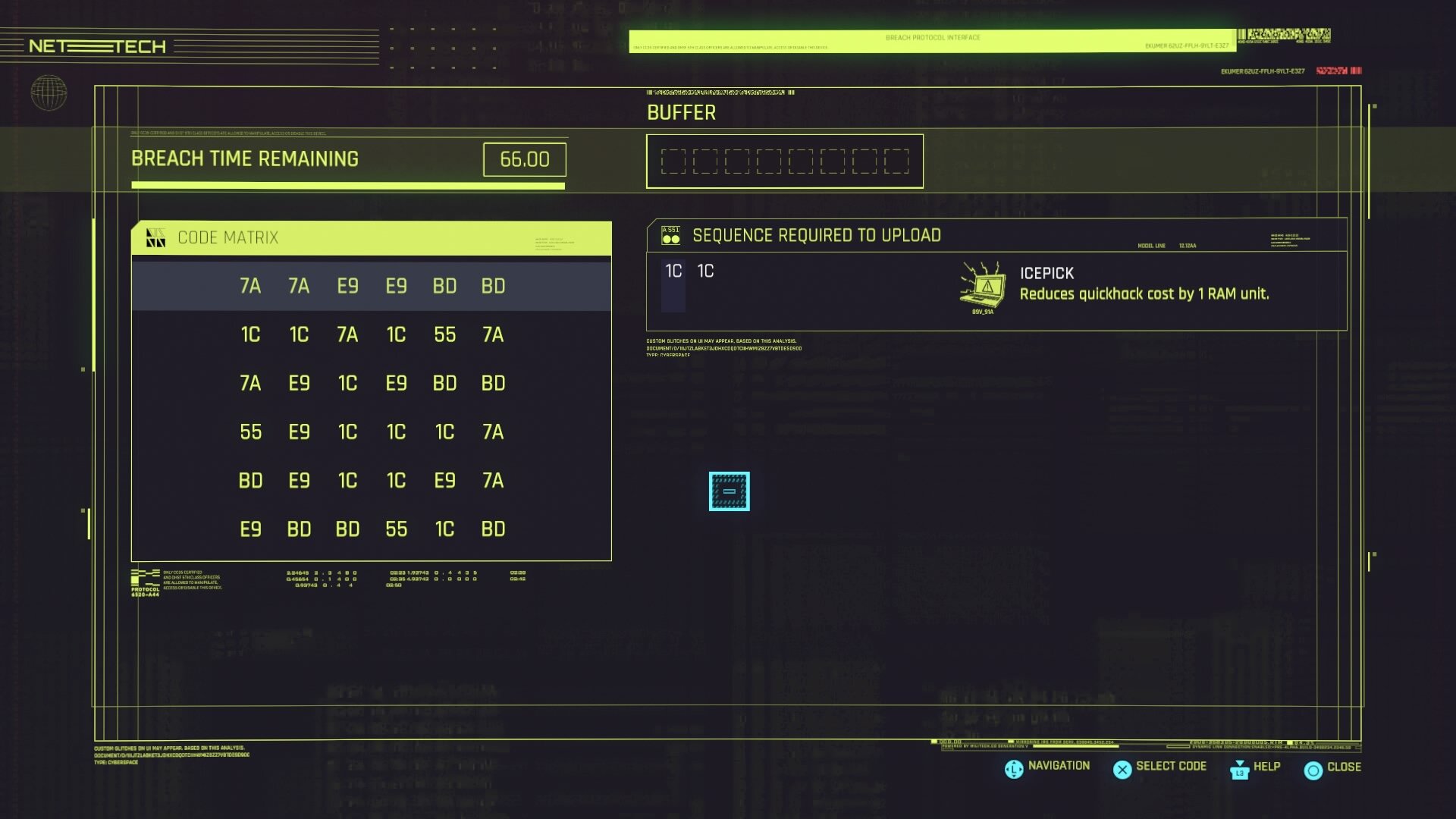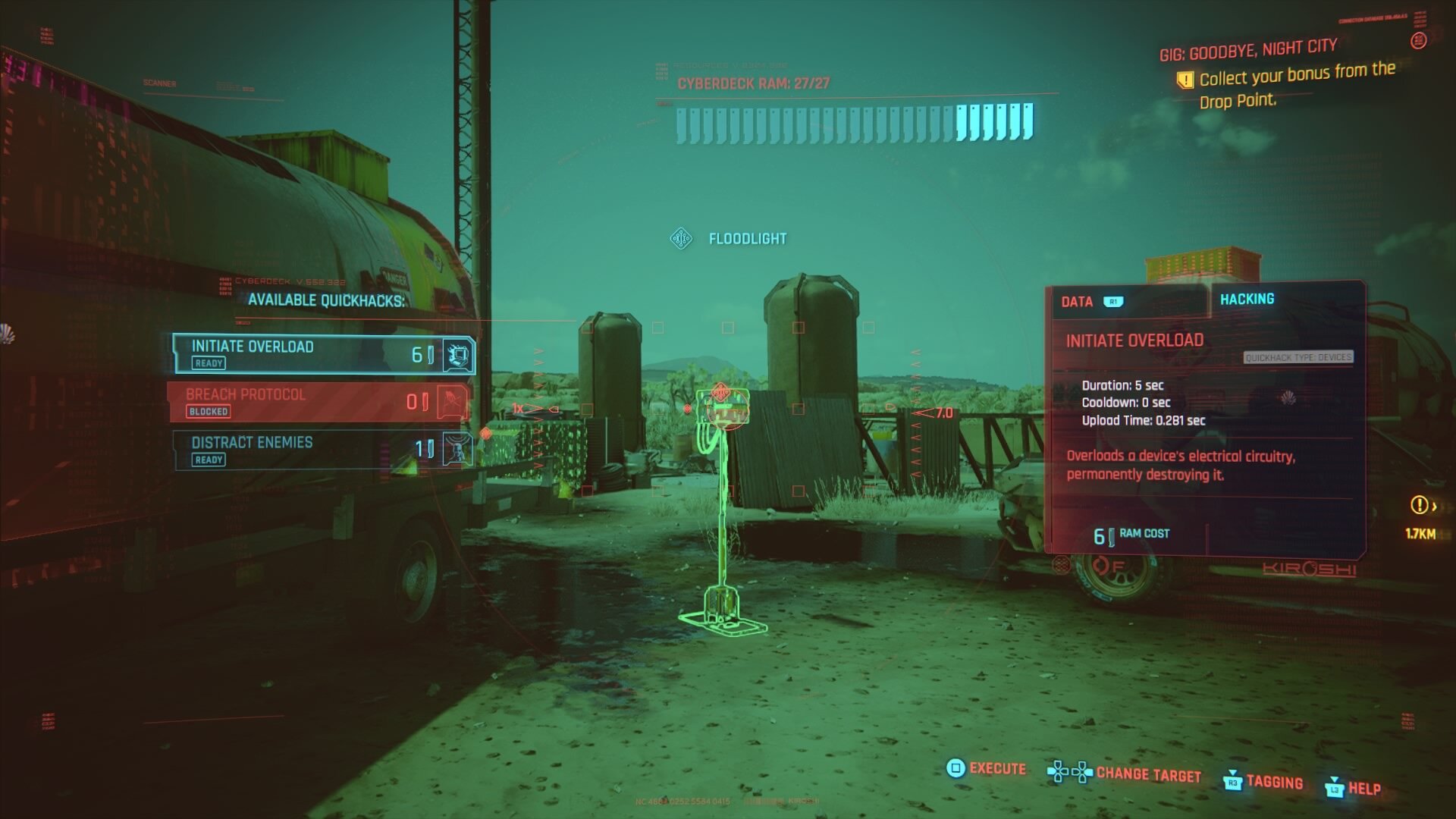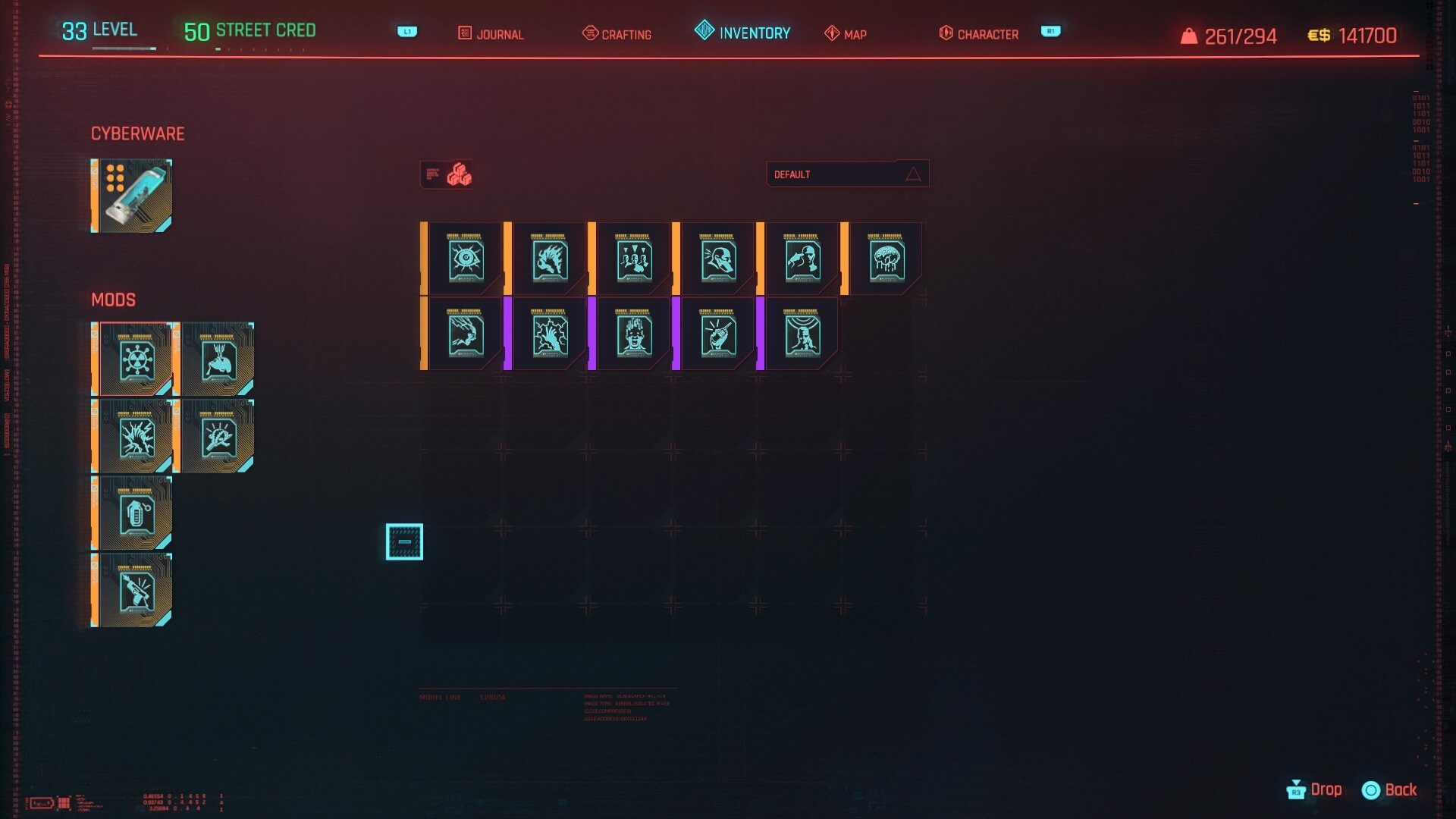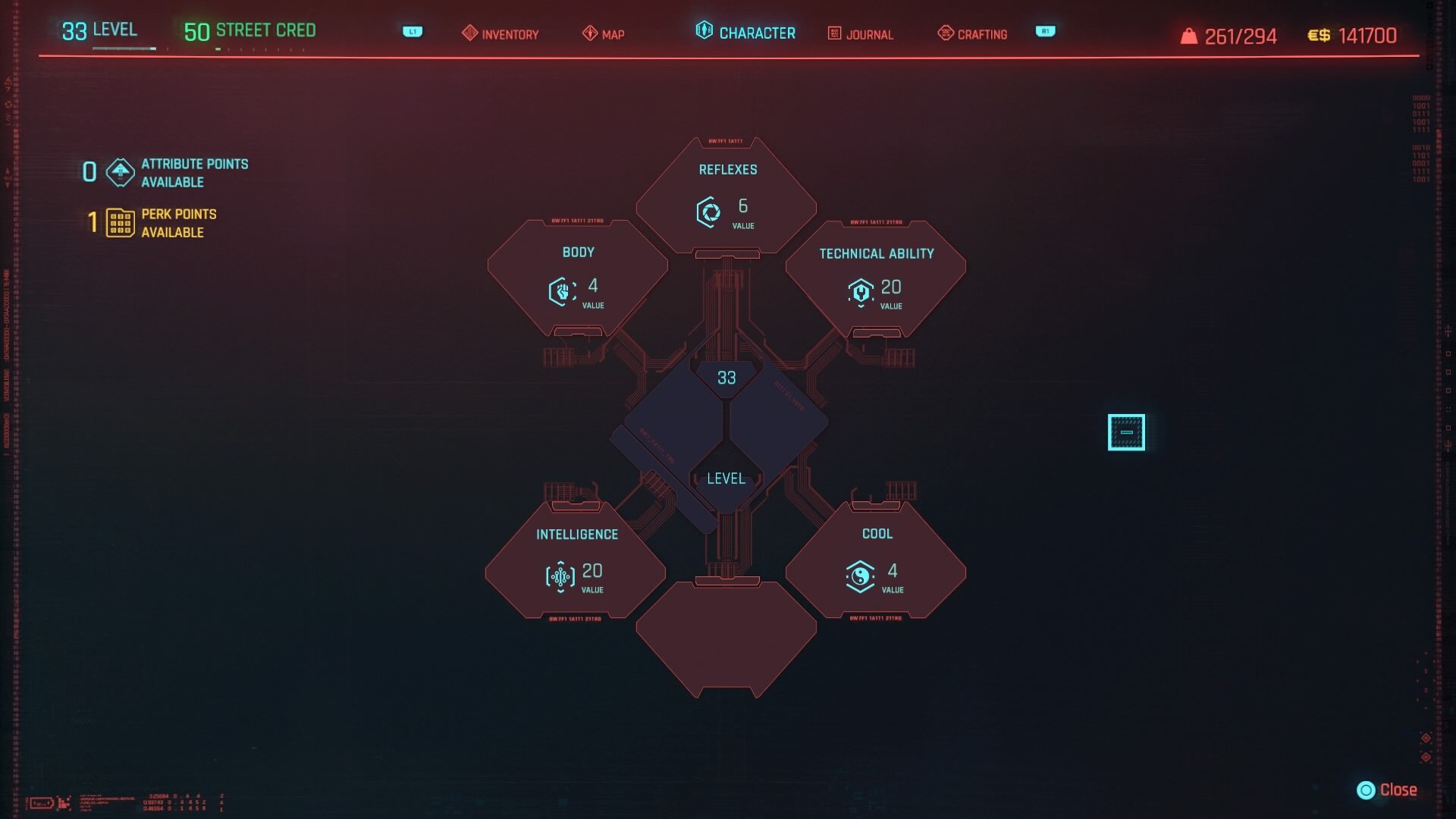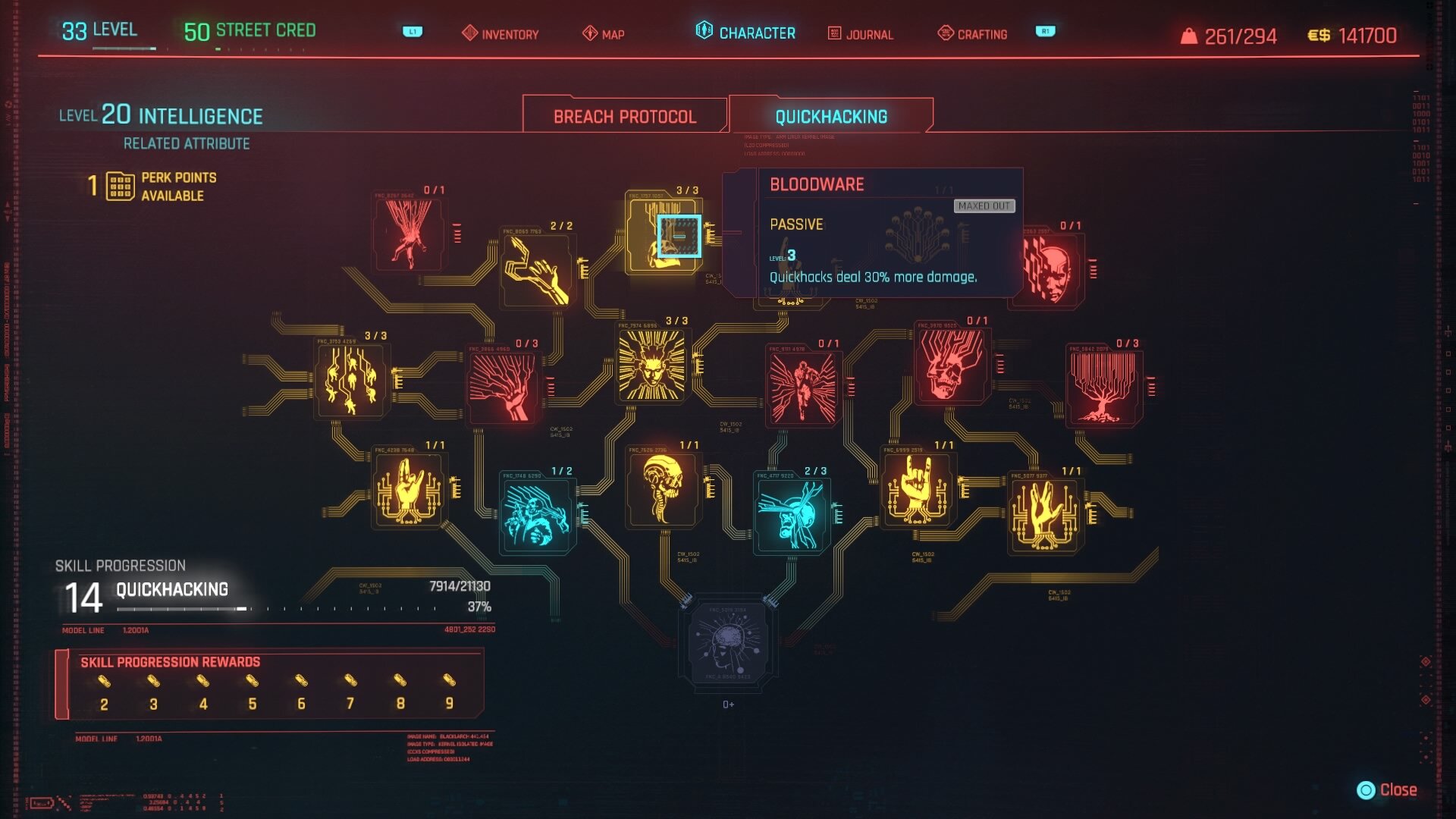Cyberpunk 2077 Running a Netrunner
/Making cheese before hacking those screens.
What is a Netrunner?
In the world of Cyberpunk, a netrunner is the futuristic version of the hacker archetype. Netrunners know how to take advantage of every kind of computerized technology by interacting with it via cybernetic brain implants, or cyberdecks. Because everyone and everything is computerized in some way in Night City, netrunners are capable of pulling astonishingly powerful strings, from causing everyday devices like lights and vending machines to malfunction, to reconstructing events from surveillance tech and cybernetic recordings, to frying the circuitry in weapons systems and cybernetics. A netrunner masters their environment and the bodies of others without ever touching anything.
In gameplay terms, this translates to being the futuristic equivalent of a wizard. Quickhacks—your spells—cause damage, immobilize or blind enemies, disable weapons, and otherwise turn a person’s augmented body against themselves. A netrunner can breach whole systems, making a group of targets more vulnerable to different types of damage, disabling or taking over surveillance or automated defense turrets, and cause environmental distractions for easier stealth. A seasoned netrunner can even force enemies to commit suicide by gun or grenade, or go psycho and attack friend and foe alike. Many quickhacks can even spread among a group like an infection. If you want to have complete battlefield control without having to fire a bullet or lay hands on, nothing does that better than a netrunner.
So how does hacking work in-game?
To hack targets, V scans her surroundings and focuses in on a hackable object or person, indicated by a red outline or hacking icon. Time slows while scanning, making it easy to pick a target even mid-combat. Once an object or person is center-screen, the list of available commands appear. Choose a quickhack, and a red box appears over the target, filling up to indicate the loading of the hack. Once it’s loaded in, its effects take place. Hacks cost a certain number of RAM to execute, and available ram and how fast it regenerates will depend on equipped cybernetics, the intelligence attribute score, and perks.
You might notice the breach protocol option is almost always available for zero RAM. Using breach protocol begins a short code-based minigame that, if executed correctly, will upload daemons to all systems within the network of the target being breached. Daemons cause a specific effect to a system for a period of time; the icepick daemon, for example, reduces all quickhack costs by a certain amount. V doesn’t have to breach a system to use quickhacks, but doing so not only increases quickhacking efficiency, but can come with some nifty bonuses like disabling all security cameras, lowering enemy resistances, or automatically disabling all enemy weaponry. The breach protocol minigame slows down the flow of gameplay somewhat, but the bonuses it grants are worth the effort.
Does V have to specialize to be good at hacking?
No, V has to specialize to be really good at it. V can take advantage of most quickhacks regardless of build, though hacking is only possible if the cyberdeck installed in her brain has slots for quickhacks and offers RAM. My samurai-gunner V has a cyberdeck that allows him to slow time, but without RAM or quickhack slots, he can only perform simple breaches. If V has an appropriate cyberdeck, then her ability to cast quickhacks is only limited by her available RAM. With that said, it’s perfectly possible to create a special ops V with a mix of combat skills and decent hacking abilities.
With focus comes some serious benefits, however. A specialized V with high intelligence, lots of breach protocol and quickhack perks, and appropriate cybernetics will have tons of RAM, a high RAM recovery rate, and access to a max of 6 quickhacks. Ultimate quickhacks, those that make enemies commit suicide or go psycho, are only available to characters with enough RAM to cast them (they’re expensive), and so require a bit more specialization. Each quickhack comes in different rarities, just like weapons, armor, and cybernetics, and the rarer they are, the more powerful they are, but also the more expensive to use they become. My netrunner V can dispatch entire groups in seconds if she’s hidden and uses the right hacks. She can even dispatch enemies through their surveillance system while sitting comfortably in a shady corner. Devilish.
If you want to be a great hacker, you aren’t stuck to doing just that one thing. There are enough attribute points to max out two attributes (with change), and certainly enough perk points to make V good, if not masterful, at several things. My netrunner V also happens to be great with tech weapons and crafting high-stat equipment. She can’t survive more than a few shots, and if an enemy gets close enough to deck her she’s in real trouble, but her hacks take out most enemies before a fight starts, and her tech rifle cleans up anyone that’s left even if they’re in cover (tech weapons can shoot through cover. Good times). So if you want to be a John Wick handgun master and a hacking god? Go for it.
Can you ignore hacking altogether?
Absolutely. Though a strong hacking build is godlike in its near omnipotence, hacking isn’t necessary at all. That’s what makes Cyberpunk 2077 such a good RPG; you can play the game any way you like, taking into account your character’s strengths and weaknesses. Hacking, particularly the breach protocol minigame, may not be for everyone—it’s not flashy, fast-paced, or visceral—so definitely experiment before you commit those attribute points.



